In the annals of Greek mythology, lies an epic tale that captivates the imagination and showcases the strength of a demigod named Perseus. His journey, filled with peril and great feats, centers around his encounter with the fearsome Gorgon Medusa, the serpent-haired monster whose mere gaze turns mortals into stone. This extraordinary saga weaves together prophecies, divine intervention, and the triumph of a hero on a quest for redemption. Join us as we delve into the mesmerizing story of Perseus and Medusa, where mortal and divine forces collide, and a young hero embarks on a quest that will forever change his destiny.
Contents
- 1. The Origins of Perseus
- 2. The Gorgon Medusa
- 3. Perseus and Medusa
- 4. Perseus’ Heroic Deeds
- 5. Conclusion
-
Frequently Asked Questions
- 1. Who were Perseus’ parents?
- 2. Why did King Acrisius imprison Danae?
- 3. How did Perseus and Danae end up on the island of Seriphos?
- 4. Who was Polydectes and why did he want to marry Danae?
- 5. What did the Oracle of Apollo reveal about Perseus’ future?
- 6. What gifts did the gods bestow upon Perseus for his quest?
- 7. What was the purpose of Perseus’ quest to slay Medusa?
- 8. What were the special abilities of the Gorgon Medusa?
- 9. How did Perseus defeat Medusa?
- 10. What other heroic deeds did Perseus accomplish?
- References
-
Frequently Asked Questions
- 1. Who was Perseus and what made him special?
- 2. What was the prophecy surrounding Perseus’ birth?
- 3. What was Perseus’ quest in the epic tale?
- 4. What was the curse of the Gorgon Medusa?
- 5. What did Medusa look like and what were her abilities?
- 6. What gifts did the gods bestow upon Perseus?
- 7. How did Perseus defeat Medusa?
- 8. What heroic deeds did Perseus accomplish after defeating Medusa?
- 9. What significance does the story of Perseus hold in Greek mythology?
- 10. Why should we remember the epic tale of Perseus and the Gorgon Medusa?
- References
- Read More
1. The Origins of Perseus
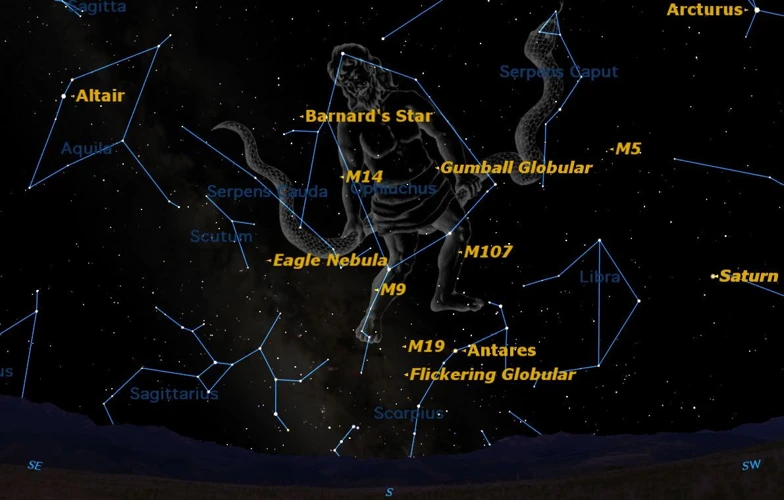
Perseus, the legendary hero, was the offspring of a divine union between Zeus, the king of gods, and Danae, a mortal princess. Danae’s father, King Acrisius, had received an ominous prophecy that his grandson would bring his downfall. Determined to prevent this, he imprisoned Danae in a bronze chamber, attempting to thwart any possibility of her bearing a child. However, Zeus, with his godly prowess, found a way to visit Danae, impregnating her with Perseus. Despite Acrisius’ efforts, the birth of Perseus could not be suppressed, and thus, the prophecy was set in motion, leading to a chain of extraordinary events.
As foretold by the Oracle of Apollo, it was revealed that Perseus would eventually cause the death of his grandfather, Acrisius. Disturbed by this unsettling prophecy, Acrisius decided to cast Danae and her infant son adrift at sea in a wooden chest, hoping to avoid his fated demise. The chest carried them all the way to the island of Seriphos, where they were rescued by a kind fisherman named Dictys. Perseus, now safe from the clutches of his vengeful grandfather, grew up under the protection of Dictys and his wife, unaware of his true origins.
As Perseus reached adulthood, fate intervened once again when Polydectes, the tyrannical ruler of Seriphos, became infatuated with Danae and sought to marry her. Perseus, powerless to protect his mother, embarked on a perilous quest to slay the Gorgon Medusa, hoping to win the favor of the gods and save Danae from this unwanted union. With divine guidance and a cadre of legendary weapons bestowed upon him by the gods, including Hades’ helm of invisibility, Hermes’ winged sandals, and a reflective shield from Athena, Perseus set off on a treacherous and fantastical journey to confront the infamous Gorgon.
This first chapter of the tale of Perseus sets the stage for an extraordinary hero’s journey, filled with danger, divine intervention, and the weight of prophetic destiny. The foundations have been laid, and the stage is now set for the epic confrontation between Perseus and the dreaded Gorgon Medusa.
1.1. A Demigod is Born
A demigod is born, marking the union between the mighty Zeus, the king of gods, and the mortal princess Danae. This divine connection bestowed upon Perseus extraordinary qualities and abilities that set him apart from mere mortals. As a demigod, Perseus possessed superhuman strength, agility, and resilience, making him a formidable force in the face of adversity. The blood of the gods flowed through his veins, granting him a unique connection to the divine realm and the power to wield enchanted weapons. With these divine gifts, Perseus embarked on his heroic journey, destined to overcome insurmountable challenges and fulfill his extraordinary destiny. The birth of Perseus as a demigod merges the realms of gods and mortals, setting the stage for an epic tale of heroism and mythos.
1.2. The Prophecy
The prophecy surrounding Perseus foretold a tragic fate that hung over the hero like a shadow. According to the Oracle of Apollo, it was revealed that Perseus would inadvertently cause the death of his own grandfather, King Acrisius. This prophecy cast a dark cloud of uncertainty over Perseus’ life, as his mere existence seemed to seal the fate of those around him. The revelation of this prophecy not only set in motion a series of events that would shape Perseus’ life but also weighed heavily on his mind.
King Acrisius, upon learning of the prophecy, became consumed by fear and desperation to prevent his own demise. He went to great lengths to protect himself, including imprisoning his daughter Danae and her infant son Perseus in an attempt to cut off any possibility of the prophecy coming to pass. However, the unfolding events proved that fate cannot be easily evaded.
The prophecy served as the catalyst for Perseus’ journey, driving him to fulfill his destiny and seek out the confrontation with the Gorgon Medusa. It fueled his determination to prove himself heroic and worthy of the gods’ favor. With the weight of the prophecy on his shoulders, Perseus set forth on his epic quest, unknowingly stepping into a world of mythical creatures and divine intervention.
The prophecy, as foretold by the Oracle, added an additional layer of complexity to Perseus’ story. The wheels of fate were set in motion, and the hero would face numerous trials and tribulations in his pursuit of redemption and the ultimate defeat of the Gorgon Medusa.
The next chapter in this epic tale will delve into the beginning of Perseus’ quest and the challenges he faces along the way. Stay tuned as we unravel the intricacies of Perseus’ journey and the mythological wonders that lie ahead.
Link anchor: /astrological-significance-ophiuchus-today/
1.3. The Quest Begins
As Perseus embarked on his perilous quest to face the terrifying Gorgon Medusa, he ventured into uncharted territories and encountered numerous challenges along the way. Guided by the wisdom and divine gifts bestowed upon him, Perseus navigated treacherous lands, seeking the elusive lair of the Gorgon. His path took him through dense forests where mythical creatures lurked, across vast deserts where scorching winds threatened to deter him, and into the depths of shadowy caves where danger lay in wait.
During his arduous journey, Perseus encountered various allies who aided him on his quest. The nymphs of the North, known as the Hesperides, gifted him with a magical pouch to contain the head of Medusa, ensuring its deadly power would not harm him. He also received assistance from the gods themselves, with Hermes guiding him through the labyrinthine paths and Athena providing him with crucial advice and insights.
As he traversed the treacherous landscape, Perseus honed his skills and abilities, growing stronger and more determined with each passing obstacle. He encountered mythical beasts like the Graea, three ancient sisters who shared a single eye and tooth, forcing him to outwit their cunning nature and extract vital information about the location of Medusa’s lair.
Finally, after enduring countless hardships and surmounting numerous tests of bravery, Perseus reached his destination: the desolate realm where Medusa and her Gorgon sisters dwelled. Armed with his divine gifts and unwavering resolve, Perseus prepared to face the fearsome creature whose gaze could turn any mortal into stone.
The quest of Perseus had truly begun, setting the stage for a climactic battle that would test his mettle and determine the fate of his beloved mother and his own destiny. Will he be the hero who triumphs over the monstrous Medusa, or will he meet a grisly fate at the hands of the Gorgon’s deadly stare? Only time will reveal the outcome of this legendary quest.
2. The Gorgon Medusa
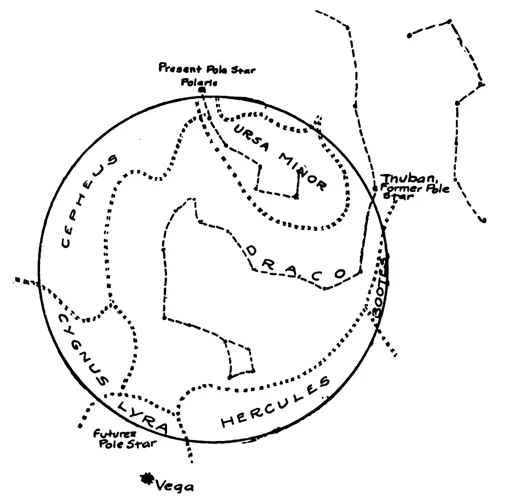
The Gorgon Medusa, a creature of both awe and terror, plays a pivotal role in the epic tale of Perseus. According to mythology, Medusa was once a beautiful mortal woman until she drew the ire of the goddess Athena. Enraged by Medusa’s desecration of her temple, Athena punished her by transforming her into a hideous monster with snakes for hair. Medusa’s gaze became her most dreaded weapon: anyone who looked into her eyes would be instantly turned to stone.
Medusa’s appearance was truly ghastly, with her monstrous visage striking fear into the hearts of all who beheld her. Her once enchanting features were twisted into a fearsome countenance, complete with a wide snarling mouth, sharp fangs, and glowing, vengeful eyes. Her hair, once lustrous and flowing, was replaced by a writhing mass of venomous serpents, each snake bearing its own deadly venom. Medusa’s terrifying appearance alone was enough to freeze anyone in their tracks.
In addition to her fearsome appearance, Medusa possessed supernatural powers and abilities that made her even deadlier. Her serpentine hair allowed her to strike with lightning speed, venom dripping from their fangs. Even the slightest touch from these venomous serpents could spell certain death for anyone unfortunate enough to come into contact with them. To further protect herself, Medusa’s petrifying gaze turned anyone who dared to meet her eyes into an immobile statue, forever frozen in their last moments. These powers made Medusa an unstoppable force, causing mortal and immortal beings alike to cower in fear.
The tale of Perseus and Medusa hinges upon the clash between the hero’s determination and the terrifying might of the Gorgon. As Perseus prepares to face the monstrous Medusa, he must rely on cunning, divine intervention, and the gifts bestowed upon him by the gods. Will Perseus be able to overcome this seemingly insurmountable challenge and fulfill his heroic destiny? The answer lies in the forthcoming chapters of this epic saga.
2.1. The Terrible Curse
The tale of Perseus and the Gorgon Medusa brings to light the terrible curse that afflicted Medusa and transformed her into a horrifying monster. Once a beautiful maiden with lustrous hair, Medusa caught the attention of the sea god Poseidon. In a fateful encounter within the hallowed walls of Athena’s temple, Poseidon and Medusa committed an act of sacrilege, desecrating the sacred space. Enraged by their audacity, Athena punished Medusa by transforming her hair into a writhing tangle of serpents and cursing her with a gaze that turned all who looked upon her into stone.
This curse bestowed upon Medusa was a dreadful burden, turning her beauty into a weapon of destruction. Any mortal who dared to meet her gaze would be frozen in eternal petrification. Her once enchanting visage now brought only terror and despair. Medusa’s transformed form, with her terrifying reptilian hair and gaze, struck fear into the hearts of those who encountered her.
It is this terrible curse that sets the stage for the awe-inspiring challenge that Perseus would face. Armed with divine guidance and extraordinary powers, he must confront the cursed Gorgon and attempt the impossible task of slaying her. The curse of Medusa, a testament to the wrath of the gods and the consequences of hubris, adds a dark and formidable layer to the epic tale of Perseus.
2.2. Medusa’s Appearance and Abilities
Medusa, the infamous Gorgon, possessed a terrifying appearance and otherworldly abilities that struck fear into the hearts of mortals and gods alike. Described as a monstrous creature with snakes for hair, her visage was said to be so horrifying that a single glance from her petrifying gaze turned any unfortunate soul into stone. Her pale, lifeless eyes bore an eerie glow, and her snarling mouth revealed sharp fangs dripping with venom. Medusa’s body, once a beautiful woman, was now transformed into a hideous monster, replete with bronze claws and scales that covered her serpent-like tail.
The snakes that writhed atop Medusa’s head were not merely decorative elements, but living creatures with deadly fangs. These serpents hissed and slithered with malevolence, their venom potent enough to immobilize and kill instantly. Their eyes, gleaming with a poisonous malice, reflected the suffering they inflicted upon those who dared to cross paths with the Gorgon.
Medusa’s macabre abilities extended beyond her petrifying gaze. She possessed incredible agility and strength, matched only by her ferocity in battle. Her scaly tail, reminiscent of a serpent’s, allowed her to strike with precision and speed, while her supernatural endurance made her a formidable adversary. Stories whispered that even the mere sound of her hissing cries could send shivers down the spine of any mortal.
Though Medusa’s appearance and abilities were terrifying to behold, they were also a reflection of the curse that had befallen her. Once a breathtakingly beautiful priestess, her beauty attracted the attention of Poseidon, the god of the sea. Enraged by their illicit tryst, Athena, the goddess of wisdom, punished Medusa by transforming her into the monstrous creature she became.
This detailed account of Medusa’s appearance and abilities serves as a chilling reminder of the perilous encounter that awaited Perseus as he embarked on his fateful quest. It was up to him to harness his courage, cunning, and the divine gifts bestowed upon him to face the dreaded Gorgon and fulfill his heroic destiny.
3. Perseus and Medusa
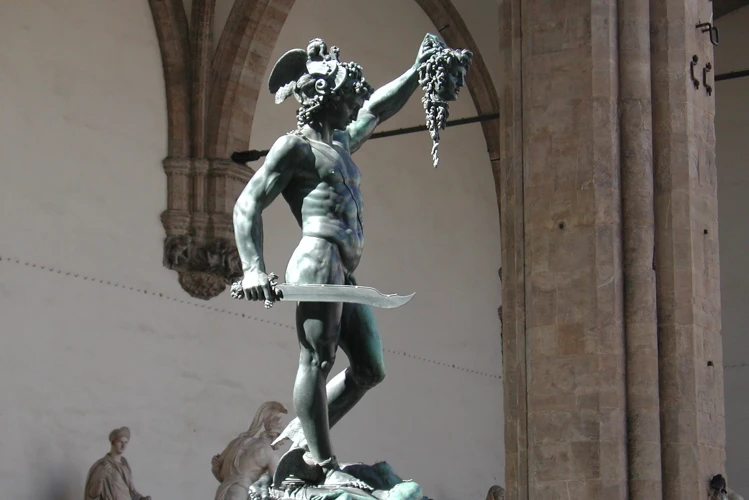
Perseus, armed with his divine gifts, embarked on a treacherous journey to face the formidable Gorgon Medusa. The task seemed insurmountable, as looking directly at Medusa would turn anyone into stone. However, Perseus had a plan, guided by the wisdom of the gods. Utilizing his Hades’ helm of invisibility, Perseus carefully approached Medusa’s lair, hidden from her gaze.
Upon entering the darkness, Perseus witnessed the horrifying visage of Medusa. She possessed a monstrous appearance, with venomous snakes writhing in place of her hair. Her eyes glowed with a bone-chilling malevolence, instilling fear at the mere sight. Nevertheless, Perseus remained steadfast, knowing that he must not meet her gaze.
With the aid of Athena’s shield, which bore a reflective surface, Perseus peered into it, catching a glimpse of Medusa’s reflection. This allowed him to gauge her movements without risking direct eye contact. Timing his actions with precision, he swiftly decapitated the Gorgon with his sword, all while avoiding her deadly gaze.
As Medusa’s head was severed from her body, a momentous event occurred. From her neck sprang forth two powerful creatures, the winged horse Pegasus, and Chrysaor, a fearsome warrior. These mythical beings were the descendants of Medusa and the sea god Poseidon.
With Medusa defeated, Perseus claimed her petrifying gaze as a weapon. Retaining its power even in death, the severed head became an instrument to vanquish enemies. It served as a deterrent, capable of turning foes into lifeless stone, a testament to Perseus’ triumph over one of the most fearsome creatures in Greek mythology.
This pivotal chapter in the tale of Perseus and Medusa showcases the hero’s resourcefulness and courage in the face of unimaginable danger. Equipped with divine tools and guided by the wisdom of the gods, Perseus overcame the monstrous Gorgon, ensuring his place in the annals of Greek mythology. The story continues as Perseus sets out to accomplish further heroic deeds, armed with the head of Medusa as a symbol of his victory.
3.1. The Gifts From the Gods
On his perilous journey to confront the dreaded Gorgon Medusa, Perseus received invaluable gifts from the gods, empowering him to face the monstrous creature. These divine artifacts equipped him with extraordinary abilities and ensured his success in his daunting quest.
First and foremost, the goddess Athena presented Perseus with a gleaming, polished shield. This shield had a unique property – it possessed such a highly polished surface that it could reflect anything it faced. With this shield, Perseus could gaze upon Medusa’s deadly visage without succumbing to her petrifying glare. It became his ultimate defense against the lethal power of the Gorgon’s gaze. Holding the shield high, Perseus found himself shielded from Medusa’s deadly glare, allowing him to strike without being turned into stone himself.
Additionally, the god Hermes bestowed upon Perseus a pair of winged sandals. These footwear marvels gave Perseus the ability to fly swiftly and silently through the air, granting him an unmatched advantage in his pursuit of Medusa. The winged sandals allowed him to approach the Gorgon unnoticed and launch his attack with the element of surprise. With the gift of flight, Perseus could navigate treacherous terrains and reach his destination with remarkable speed, ensuring he could strike swiftly.
Lastly, Hades, the god of the underworld, offered Perseus a magnificent helm of invisibility. When worn, this enchanted helm rendered Perseus completely invisible to both mortals and gods. With this supernatural ability, Perseus could avoid detection by any potential threats or adversaries as he made his way to confront the Gorgon Medusa. The helm granted him the advantage of stealth, allowing him to move undetected through Medusa’s lair and execute his plan with precision.
Armed with the reflective shield, winged sandals, and the helm of invisibility, Perseus possessed the gifts of the gods necessary to face the terror of Medusa’s lair. These divine artifacts enhanced his strength, agility, and protection, elevating him from a mere mortal to a formidable force capable of challenging the most dreadful of adversaries. With the blessings of Athena, Hermes, and Hades, Perseus embarked on the next phase of his epic journey, the final showdown with the monstrous Gorgon Medusa.
3.2. The Head of Medusa
Upon reaching the lair of the fearsome Gorgon Medusa, Perseus used his cunning and divine gifts to aid him in the battle. As he approached, he donned the helm of invisibility, rendering himself unseen by the monstrous creature. Gazing upon Medusa directly meant certain death, for her eyes turned any mortal to stone. Guided by Athena’s wisdom and strategy, Perseus carefully used the reflective surface of his shield to catch a glimpse of Medusa’s reflection without directly looking at her. With his trusty sword, he struck swiftly and decisively, severing the Gorgon’s head from her serpent-tangled body. The green blood that gushed from the decapitated corpse gave birth to Pegasus, the famous winged horse, and Chrysaor, a fearsome warrior bearing a golden sword.
However, the tale of the Gorgon did not end there. For the terrifying power still resided within Medusa’s severed head. Perseus, recognizing the potential danger it held, cleverly decided to keep the head. The head of the Gorgon Medusa had transformative properties, known to turn any living creature to stone with a single glance. He skillfully stored the head in a magic pouch, carefully wrapping it in materials that would prevent its deadly stare from harming him or others.
Equipped with the potent and dangerous artifact, Perseus embarked on his journey back to Seriphos. On his way, he faced numerous trials, including a showdown with the sea monster Cetus, who threatened the life of the beautiful princess Andromeda. Utilizing the power of Medusa’s head, Perseus turned the beast to stone, saving Andromeda and earning her affection and gratitude.
The head of Medusa became not only a symbol of Perseus’ victory but also a powerful weapon that he utilized in extraordinary circumstances. The head held the ability to turn enemies into stone, rendering them immobile and helpless. With this incredible tool in his possession, Perseus would go on to use it in other heroic deeds, demonstrating his unwavering determination and resourcefulness.
Perseus’ acquisition of the head of Medusa marks a pivotal moment in his journey, as it not only served as a powerful weapon but also a catalyst for the continuation of his heroic deeds. The twisted, venomous gaze that once struck fear into the hearts of mortals was now under his control, a testament to the courage and intelligence of the remarkable demigod.
4. Perseus’ Heroic Deeds
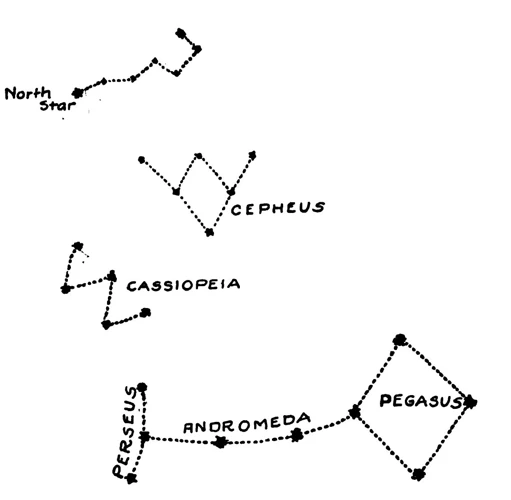
Perseus, armed with divine gifts and a courageous spirit, embarked on a series of heroic deeds that would cement his place in Greek mythology. One of his most renowned accomplishments was the daring rescue of Andromeda, a princess who had been chained to a rock as a sacrifice to appease the wrathful sea monster, Cetus. Upon witnessing Andromeda’s plight, Perseus, with the aid of his winged sandals and his impenetrable shield, swooped down from the sky like a bird of prey, brandishing the fearsome head of Medusa. The mere sight of the Gorgon’s petrifying visage was enough to turn Cetus to stone, liberating Andromeda and ensuring her safe return to her grateful parents. This act of heroism solidified Perseus’ reputation as a legendary champion and protector of the innocent.
Another formidable and memorable feat performed by Perseus was his epic battle with the sea monster known as the Kraken. The monstrous creature, with its massive size and destructive power, threatened to wreak havoc on the kingdom of Argos. Undeterred, Perseus embarked on a quest to defeat the Kraken and save his people. Armed with his divine weaponry and aided by the gods, Perseus confronted the behemoth in a titanic struggle. With his wits and extraordinary abilities, Perseus emerged victorious, vanquishing the Kraken and freeing his land from impending destruction. This valiant act elevated Perseus to the status of a true hero, revered by his people and adored by the gods.
Perseus’ heroic deeds serve as a testament to his extraordinary abilities, unwavering determination, and his status as a demigod. From rescuing princesses to battling sea monsters, his legend grows with each perilous adventure, inspiring future generations with tales of bravery, cunning, and divine intervention. The epic saga of Perseus encapsulates the very essence of heroism, as he overcomes seemingly insurmountable challenges and emerges triumphant, leaving an indelible mark on the annals of Greek mythology.
4.1. The Rescue of Andromeda
The heroic deeds of Perseus did not end with the defeat of Medusa. After decapitating the fearsome Gorgon, he embarked on yet another daring mission – the rescue of Andromeda, a princess of Ethiopia. Andromeda had been chained to a rock as a sacrifice to appease the wrath of a sea monster, sent by the vengeful sea god Poseidon. Sensing an opportunity to display his valor once again, Perseus set forth to save Andromeda from her impending doom.
Armed with the head of Medusa, Perseus arrived at the seaside cliffs where Andromeda was held captive. As the sea monster approached, Perseus unleashed the power of Medusa’s severed head, turning the creature to stone with a single glance. Andromeda’s life was saved, and Perseus became her savior and eventual husband.
The rescue of Andromeda was a testament to Perseus’ strength, resourcefulness, and unwavering determination. This valiant act solidified his status as a true hero, not only in the eyes of mortals but also among the gods themselves. The union of Perseus and Andromeda would forge a remarkable legacy, with their descendants playing significant roles in Greek mythology, including the birth of the great hero Heracles.
As we witness this captivating chapter in the epic tale of Perseus, it becomes clear that his heroic deeds were not confined to a single encounter with the Gorgon Medusa. The rescue of Andromeda showcases Perseus’ courage, cunning, and ability to overcome seemingly insurmountable challenges. It serves as a reminder that the greatest heroes are not defined by a single act but by a series of extraordinary feats that leave a lasting impact on the world around them.
4.2. The Battle with the Sea Monster
In his heroic journey, Perseus faced another formidable challenge—battling a terrifying sea monster. This fearsome creature, known as Cetus, had been sent by Poseidon, the god of the sea, to wreak havoc on the land of Ethiopia. The desperate cries of the people and the impending doom compelled Perseus to step forward and face this monstrous threat head-on.
Equipped with his magical weapons and aided by the gods, Perseus embarked on a treacherous mission to save the innocent lives at stake. The details of the battle are shrouded in legend, but accounts say that Perseus skillfully maneuvered through the monstrous waves, his movements guided by the divine gifts bestowed upon him. With each strike, the sea monster roared in agony, unleashing its fury upon the hero.
Though the battle was fierce, Perseus persevered, weaving through the vicious jaws and powerful limbs of the sea monster. Every strike counted, and with a final, decisive blow, Perseus delivered the fatal blow that vanquished the creature. The battle came to an end, and the threat to Ethiopia was no more.
This epic clash with the sea monster showcased the bravery and prowess of Perseus, solidifying his status as a true hero. His victory was not merely an act of strength but a display of divine intervention and determination. With the sea monster defeated, Perseus emerged triumphant, leaving behind a legacy that would be celebrated for generations to come.
As Perseus’ heroic deeds unfolded, each challenge he faced showcased his unwavering courage and the power of the gods. With the mighty sea monster vanquished, Perseus’ heroic quest reached new heights, setting the stage for the final chapters of his legendary tale.
5. Conclusion
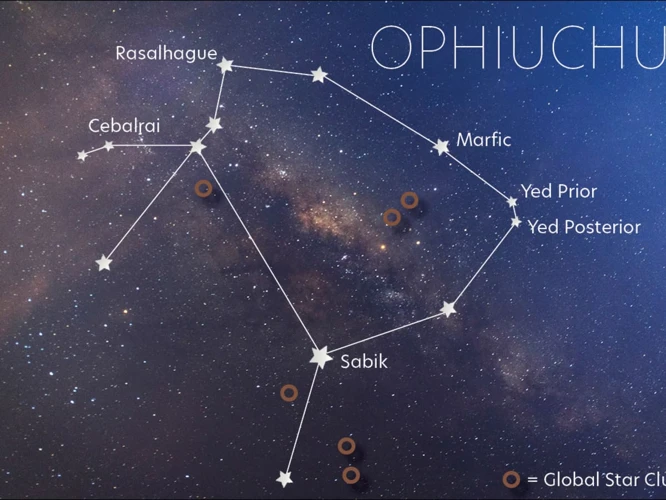
Throughout the epic tale of Perseus and the Gorgon Medusa, we have witnessed the incredible journey of a demigod, driven by prophecy and divine intervention. From his origins as the son of Zeus and Danae to his perilous quest to slay the dreaded Medusa, Perseus displayed immense bravery and resourcefulness. Armed with weapons bestowed by the gods themselves, he faced insurmountable challenges, including the deadly gaze of Medusa, and emerged victorious.
But Perseus’ heroic deeds did not end there. He went on to rescue the princess Andromeda from a sea monster and engaged in a fierce battle to defend her. These feats solidified his place as a legendary hero, revered by mortals and honored among the gods. Perseus became a symbol of courage, determination, and the triumph of good over evil.
The tale of Perseus and Medusa serves as a reminder of the power of perseverance and the strength that lies within each one of us. It encourages us to face our own personal demons, no matter how formidable they may seem. Like Perseus, we too can tap into our inner resources, overcome challenges, and emerge victorious.
As we bid farewell to Perseus and his extraordinary adventures, let us reflect on the enduring legacy of this epic tale. It inspires us to embrace the hero within, chase our dreams, and slay the metaphorical monsters that stand in our way. The story of Perseus and the Gorgon Medusa will forever live on as a testament to the indomitable spirit of the human soul.
Frequently Asked Questions

1. Who were Perseus’ parents?
Perseus was the son of Zeus, the king of gods, and Danae, a mortal princess.
2. Why did King Acrisius imprison Danae?
King Acrisius imprisoned Danae because he had received a prophecy that his grandson would bring about his downfall.
3. How did Perseus and Danae end up on the island of Seriphos?
Perseus and Danae ended up on the island of Seriphos after they were cast adrift at sea in a wooden chest. They were eventually rescued by a kind fisherman named Dictys.
4. Who was Polydectes and why did he want to marry Danae?
Polydectes was the tyrannical ruler of Seriphos, and he wanted to marry Danae because he was infatuated with her.
5. What did the Oracle of Apollo reveal about Perseus’ future?
The Oracle of Apollo revealed that Perseus would cause the death of his grandfather, King Acrisius.
6. What gifts did the gods bestow upon Perseus for his quest?
The gods bestowed upon Perseus a helm of invisibility from Hades, winged sandals from Hermes, and a reflective shield from Athena.
7. What was the purpose of Perseus’ quest to slay Medusa?
Perseus embarked on his quest to slay Medusa in order to win the favor of the gods and save his mother Danae from marrying Polydectes.
8. What were the special abilities of the Gorgon Medusa?
Medusa had the ability to turn anyone who looked directly at her into stone with her gaze. She also possessed serpents for hair.
9. How did Perseus defeat Medusa?
Perseus used the reflective shield given to him by Athena to avoid looking at Medusa directly. With his winged sandals and Hades’ helm of invisibility, he swiftly decapitated her, once and for all.
10. What other heroic deeds did Perseus accomplish?
Perseus rescued the princess Andromeda from a sea monster and engaged in a battle with the beast to save her. He also participated in other mythical adventures, such as his involvement in the hunt for the Calydonian Boar and his role in the story of the Argonauts.
References
Frequently Asked Questions

1. Who was Perseus and what made him special?
Perseus was a legendary hero in Greek mythology, known for his exceptional strength and bravery. What made him special was the fact that he was a demigod, born from the union of the god Zeus and the mortal woman Danae.
2. What was the prophecy surrounding Perseus’ birth?
The prophecy foretold that Danae would bear a son who would eventually kill his own grandfather, King Acrisius. Fearing this prophecy, King Acrisius locked Danae and her infant son Perseus in a chest and cast them adrift at sea.
3. What was Perseus’ quest in the epic tale?
Perseus set out on a perilous quest to slay the Gorgon Medusa and bring back her head. He hoped to use Medusa’s head as a weapon to fulfill the prophecy and defeat his grandfather.
4. What was the curse of the Gorgon Medusa?
The curse of Medusa was that anyone who looked into her eyes would be turned into stone. This made her a fearsome and dangerous creature, capable of petrifying her enemies with a single glance.
5. What did Medusa look like and what were her abilities?
Medusa was a terrifying creature with venomous snakes for hair and a hideous face. Her abilities included the power to turn people into stone with her gaze, as well as the enhanced strength and speed of a supernatural being.
6. What gifts did the gods bestow upon Perseus?
The gods bestowed Perseus with a number of powerful gifts to aid him in his quest. These included a reflective shield from Athena, winged sandals from Hermes, a magical sword from Zeus, and a helmet of invisibility from Hades.
7. How did Perseus defeat Medusa?
Perseus used the reflective shield given to him by Athena to avoid looking directly at Medusa, allowing him to approach her without being turned to stone. Using the sword from Zeus, he decapitated Medusa while she slept, avoiding her deadly gaze.
8. What heroic deeds did Perseus accomplish after defeating Medusa?
One of Perseus’ heroic deeds was rescuing Andromeda from a sea monster that threatened to devour her. He also played a significant role in the battle against the sea monster, using Medusa’s head as a weapon to turn the monster to stone.
9. What significance does the story of Perseus hold in Greek mythology?
The story of Perseus represents the triumph of good over evil and the power of perseverance. It also showcases the involvement of gods and their role in guiding and assisting mortal heroes in their quests.
10. Why should we remember the epic tale of Perseus and the Gorgon Medusa?
The epic tale of Perseus and the Gorgon Medusa serves as a timeless reminder of the power of courage, resourcefulness, and divine intervention. It continues to captivate and inspire people, showcasing the triumph of a hero against seemingly insurmountable odds.







